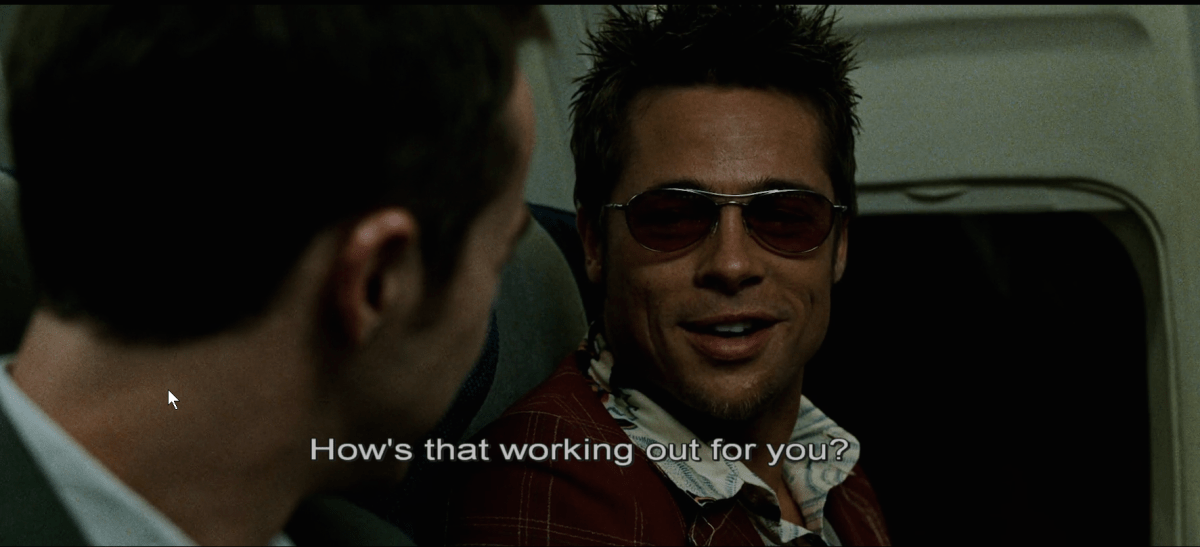how to fix banking (and money) PBDC vs CBDC
set a thief to catch a thief and set the whole world free
economist-philosopher thomas sowell once said:
“It is hard to imagine a more stupid or more dangerous way of making decisions than by putting those decisions in the hands of people who pay no price for being wrong.”
and the man undeniably has a point and while i would certainly not try to argue that such an august observer of events and human nature was wrong, i would opine that we can extend this thinking a bit; because some things do seem to be more stupid and more dangerous:
putting decisions in the hands of those who actually benefit from being wrong or whose interests lie in opposition to those of the people they are supposed to serve
constraining the decisions of those who ARE going to pay the price for bad policy by denying them the agency and information they need to make sound choices thereby creating monocultures of non-adaptive misbehavior in places where markets should be.
and i would go so far as to assert that these points are the literal foundations of our modern monetary and banking systems. government ownership and monopolization and regulation of these institutions is not the solution, it is the problem. they are neither capable nor qualified to provide or guarantee such systems and would not be incentivized to even if they were.
when governments guarantee banks, all you get is guaranteed crisis. why not? gains are private, rescue plans collectivist, and money printers go BRRRRRRR! it’s a horrendous system of incentives.
we have fundamentally set the idea of sound money in opposition to sound banking and have wound up with that most classic of governmental outcomes:
neither.
and this is an easy problem to solve: you just need markets and not monopolies. (and yes, mandatory regulation, accreditation, and chartering of financial actors and institutions is just another form of monopoly)
and this is a problem that we’re going to HAVE to solve. because the existing systems are going to fail. bigly. and perhaps far sooner than people realize. and there is not much can left to kick nor road down which to kick it.
the current corner into which much of the west is painted is going to become increasingly obvious and the only way out from under $100’s of trillions in unfunded liabilities is weimar/zimbabwean hyper-inflation or depression. (you can probably manage to get both if you try. this is, after all, government we’re talking about…)
so we need a plan, and sharpish.
so let’s lay out a couple of key salients and talk about how to get there:
we want sound currency that retains value over time and is useful as a medium of account, exchange, and savings.
we want a banking system that is sound and stable, not prone to runs, crashes, or speculative excesses and that can verifiably demonstrate those traits instead of appearing the black box that will one day explode. again.
we must accomplish this knowing several things that simply cannot be changed:
governments are astonishingly untrustworthy stewards of fiat currencies and we are not going to get “smarter guys next time.”
fractional reserve banking is an inherently risky course and prone to credit risk, rate risk, and duration mismatch.
banking regulators have pretty much nowhere evidenced any ability to mitigate this and we are not going to get “smarter guys next time.”
and the availability and extent of bail outs creates massive moral hazard that enables and encourages excess risk taking which combines in toxic fashion with monocultures of risk management (and risk tolerance) that keeps manifesting as systemic danger especially and always when banks are required to lend for reasons other than creditworthiness by the government permissions upon which their existence and operation depends.
OK. quite a lot there, so let’s dig in starting from a high level and working down.
the gold standard was a problematic institution. it set off more than a few balance of payments crises. it also diverted activity toward finding, plundering, and refining shiny rocks and away from more productive uses. but it did manage to keep price levels fairly stable. this has most emphatically not been the case since as governments got addicted to printing vs living within their means and the cantillion cronies all got fat off of it.
but you can only take that so far.
since 1956 the US dollar has lost 90% of its value. the swiss franc, one of the better and more reputable currencies, has lost 80%. so, it’s not like anyone is covering themselves in glory here. and inflationary systems lead to more risk taking and a “need” to constantly put money to work because its value evaporates. you need to run to stand still. this “red queen” aspect represents an artificial pressure on a system and likely a fundamental tendency towards over-investment, over-lending, and too much risk. and when you add piles of cash to a system you mostly wind up getting asset bubbles and vast numbers of money losing businesses.
of course, a currency that increases in value over time might be even worse because no one will want to lend it. you can just sit on piles of money and grow wealthier in real terms and so you under-invest especially as the price of real assets drops in nominal terms. imagine buying a house that you knew was going to drop in nominal value.
i’m not sure i’ve ever seen a ton of really rigorous work on it (hard in a case absent the factual) but theoretically, what we (the people, the savers, the users of money, the inhabitants of the resultant economy) likely want is something that keeps its value pretty constant. this gives you a “neutral” bias free from arbitrary driver and incentive.
obviously, you cannot trust the government to provide this. that’s been one of the worst bets in recorded history.
so, we’re talking about private money.
which makes sense.
it’s us we care about and a private market will seek to serve us whereas a government will seek to serve itself. governments like printing money to spend what they do not have and governments like inflation because it devalues their debts AND increases the tax base because things you buy rise in price and so you have cap gains when you sell. of course, it also swells their unfunded liabilities, but this gets seen as “long run” and is therefore ignored until it makes the whole house fall down. (coming soon to an OECD nation near you)
so how do we create private money?
private issuers.
i’m now going to upset the bitcoin maxis and other crypto-bros and talk about what we ideally need in money:
it needs to be stable, secure, private, reliable, and scalable.
and i just do not see BTC getting there. i’m a big believer in crypto as an idea, but i think these are 1.0 products have not reached minimum product viability (and never will without fundamental redesign). read footnote for more1
personally, my abiding suspicion is that the trustless peer to peer systems are inherently problematic because trust in systems of commerce and payment is a feature, not a bug, at least at the edge.
removing it is a form of “taking the wheels off the trebuchet” where a vital piece of a system is unwittingly removed because its importance was not understood. we want someone to trust in a financial system. you want a financial system you can trust. this evolved as emergent positive practice because it works.
ask anyone who ever had their BTC or ETH or clowncoin or whatever hacked and stolen: there is no one who can give it back. it’s like losing cash. why do we spend so freely online? because if merchants act badly, visa, mastercard, and amex have your back. and the reversibility of charges keeps people on their best behavior.
and yes, perhaps you could set up a similar system for BTC and pay a % of the transaction fee to an escrow agent or a processor, but now you’re trusting someone, aren’t you? and it’s likely to cost more than current systems because it is not truly reversible so your guarantor is more deeply on the hook (and less likely therefore to want to take your side).
what you really want are known, knowable and trusted rules, processes, and counterparties that give you maximum predictability, safety, and fairness.
you want to do business with someone whose reputation for square dealing is worth more to them than anything they could steal from you.
you want to know what’s going to happen and you want it to happen in fair fashion and with alacrity and low friction.
this is why companies incorporate in deleware and use delware law: because the body of law there is robust, even handed, and the chancellery there is no joke. they pinned even elon the legal eel to the wall in short order.
and this is why people trust them.
and this level of systemic trust is very useful to make the world work. trust is a feature in commercial ecosystems and a really, really valuable one.
so how do we impart this into the banking world?
we free the banks from federal oversight, create a real market for them and for bank like entities (BLE’s) where they have to compete for us and our patronage, and we give them the ability to set interest rates and issue currency.
no more central banking.
we make currency a product like any other product. and we let them duke it out to see who can make a compelling case and develop a reputation for stability, soundness, and fair dealing.
central bank digital currency (CBDC) will be a disaster of dystopian dominance and the bending of banking to non-banking ends.
but private bank-like-entity digital currency (PBDC) could be the path to financial liberation (and to real, no fooling around banking privacy).
blockchain systems have an inherent challenge in that transactional cost is the underpinning of security and without trust, you have to really spend to keep it anything like safe.2 if a block were easy to discover and mine, then you could easily take the whole system down with fraud or spam. so you make the math complex. but this makes the processing expensive and scalability difficult/impossible.
so you look to layer 2 to add more chains that settle more transactions and then take them summative result and post it to the main chain. but because it is a trustless system, you still have the same security costs issues. you can spread it around, but until you trust someone, security is expensive.
but what if you do trust someone?
now security is easy because transactions take place behind the firewall of a trusted party. you come to bank of gato and you pay someone else with an account there with gatobucks. or you instruct bank of gato to send gatobucks to the infamous perrobanc because you bought a car from a dog and (unlike BTC) no one can see whose funds they are and wallets are not public and neither are transactions between banks. it’s just encrypted data traffic. or, more likely, you use your gatocard to buy lunch at “chez snootay” and the whole thing gets settled later with some bank whose name you’ll probably never know and honestly could not care less about. you just wanna buy stuff and have it work and you just want bank accounts that are safe, reliable, and always on.
and banks and BLE’s are really good at doing and settling transactions with one another if you actually fricking let them and security is outward facing instead of transaction-associated so that costs do not scale with volume.
so how do we do this without government systems and government currency?
how do we design and build this system?
we don’t. we let it build itself as a emergent order market driven by a need to serve customers.
start here: any BLE can incorporate, take deposits, make loans, and issue currency. they have no governmental reporting requirements whatsoever.
wow, sounds scary, right? they could be lunatics. they could be fraudsters. they could be deeply unwise or miss-assess risks. how are you supposed to know?
probably you can’t. but does that mean you’re giving anything up? it’s not like you can now.
do you have any idea what your bank owns, owes, and gets up to? no. it’s a black box.
you’re trusting a regulator to make it safe and a government to back it up.
and i think we can do better.
and so the question becomes:
“who is better to oversee and watch a greedy banker than a regulator who not only pays no price for being wrong but that gains new power every crisis?”
and the answer is simple:
“more greedy bankers who stand to lose their butts and hamptons homes if their counterparties blow up.”
and that’s easy to do. you just need the right system.
banks actually used to run like this.
you’d have 10 banks in a city each issuing their own scrip (currency) and each agreeing to clear the scrip of the others. so bank of gato takes in perrodollars collected at the restaurants who bank with us and then clears them with perrobanc in exchange for gatobucks or other sources of value. banks used to do this all day every day and settle up multiple times and at day’s end. they did this on fricking paper in an age not only before computers but back when “calculator” was a job title for a human, not a device.
there’s nothing hard about it. in the modern age, it’s trivial.
you just need to allow it and incentivize it.
and the incentives are simple: as a bank, you want your scrip to be widely accepted. so you need other banks to clear it. and so you clear them as well in reciprocal agreements. this builds into networks that tend to iteratively find optimal currency numbers and areas.
but how are banks to trust one another? how is bank of gato to know that some dirty dog is not recklessly printing perrodollars in the basement and debasing the value while making bad loans?
the same way they used to: mutual audit rights.
regulators cannot keep up with banks. they are always 20 yards behind the play fighting the last war (except when they are out front inciting the next crisis). but banks can keep up with each other.
so if you want trust: verify.
banks used to do this. they would insect each other’s books, count the scrip issued, check out the loans, the holdings, the deposits, the depositors.
everyone watched everyone because the price of getting it wrong was “remember that bank you used to have?” when you took a bunch of dodgy dog bones you mistook for money good.
and they were GOOD at it. the system hummed along without crisis or calamity.
it’s sort of obvious once you see it.
if you want to keep an eye on a greedy banker, who better than a similarly greedy banker who stands to get hosed if bankers do something stupid or unsafe?
there is absolutely nothing wrong with self-interest in economic systems. it’s what makes them work and what drives the pareto optimality of markets. it’s quite literally vital and integral to their proper functioning.
and we can make this into a safety feature rather than a risk factor.
we just need to design systems where those making choices face the consequences of their choices. good and hard.
you don’t need to know how to regulate a bank and make it safe.
regulators do not need to know how to regulate a bank and keep it safe.
because BANKS know how to regulate banks and keep them safe.
so let’s force them into the job by pulling out all the safety nets and guard rails.
and as long as they are watching each other and have miles of skin in the game because they are clearing each other’s currencies and no one is going to come to save them (because no one can print these currencies willy nilly and stay in the system), you can trust them to do this all day long and twice on sunday.
they can offer deposit insurance from outside sources and monitor it. it should be quite cheap given the open books and safety we’re going to demand here.
and sure, banks and currencies will fail. but to be in the clearing systems, you’re going to need to sustain and show the ability for an orderly unwind at all times so that if you do, no one gets hurt and everyone gets made whole with assets they are OK taking as money good.
you’re going to get a system of incredible stability, transparency, and function because it’s competing to provide those things and competition breeds competence.
it will replace the one size fits basically no one system of regulate and hope then print when you screw up with a system of consumer sovereignty where banks not only have to earn your trust by (crazy idea i know) actually being trustworthy but to find ways to verifiably prove it. care to wager they spin out their investment banking and prop trading divisions faster than you can say “get this leverage off my sheets”?
to get into these clearing systems will take transparency and stability. it will also allow all kinds of really interesting experimentation.
do we want asset backed currencies? maybe. i’m sure folks will try it in the classical senses. can we find new intriguing ways to back a currency? i would think so.
i’ve long been fascinated by the idea of utilities as BLE’s with currencies backed by something tangible like megawatt hours of electricity delivered one month or one year from the date of redemption. it’s a fascinating idea as it incentivizes low cost electricity production, adding enough (but not too much) power to match future demand, and there will always be buyers who want to “buy and burn” the currency if it drops in value so will remain pretty stable. it’s also a quantity that tends to grow with GDP.
dozens of other ideas seem possible, plausible, and desirable.
we build webs of internally verifiable trust based on mutual need not to have counterparties fail, set banks and BLE’s to watch one another, and sit back and enjoy the rise of PBDC that will tailor itself to every need.
want to do transactions under belgian law? fine. do the transaction in that location.
want to get paid behind a firewall in the caymans? done. no one will ever know but you and your numbered account.
want to enable small banking jurisdictions to compete to innovate and create better and lower friction systems of specially suited legal and transactional systems to serve a variety of needs and keep bossypants government ESG edicts away from your hard earned dosh?
you got it.
welcome to markets. you’re going to like it here.
banks are not kept massively regulated and overseen by government to make them safe. it’s done to keep them compliant and keep the federales able to snoop upon and seize that which is yours, not theirs.
it’s the primary underpinning of state power.
and CBDC is a savage step in this direction.
but PBDC is the huge step away from it and toward a world where money, savings, and commerce become the province of we the people and opaque to the states that have for centuries stolen and plundered with impunity by virtue of being the biggest bully on the block and not letting you have any privacy.
but it’s hard to tax that which you cannot see and this would represent a large divergence with most of human history and begin to make us citizens and customers instead of subjects and serfs.
and maybe we don’t want to live like this anymore.
“oh, but the criminals will…”
let me stop you right there. they already are. they always will. it cannot be stopped or even moderated. it’s just a make believe bugbear like the war in drugs pretending it’s anything but price supports for bad actors and a perpetuator of violence driven black markets and products that are more dangerous than they need to be.
and criminals already run this system. you may just know them by other names. have you not noticed who is running your government? it’s just that society scale economic plunder winds up being a bit like treason:
if it doth profit, none dare call it plunder.
and the uniparty is in strong agreement here. both know that losing control of the money and the banks is an existential threat to their aristocratic and unaccountable powers.
sure, this all sounds like a lot of change and a lot of risk and a wildly new set of systems, but you’re not going to fix that which has become this broken without change. the mal and mis-incentives are far too great and the entrenched interests like it this way. and it’s going to break.
how can the US possibly meet its unfunded liability obligations? it can’t.
how can banks survive in an environment this capricious and demanding? they can’t.
things are going to break.
and when they do, it will be good to have a plan.
if i were a clever small jurisdiction with strong banking secrecy laws looking to position myself well for the coming decades, i’d be jumping into this with both feet.
now is the time to get this ball rolling.
the big, dominant countries are painted into corners and the opportunity to be the clever little critters that eat all the dinosaur eggs is perhaps the most interesting thing in the world right now.
and if you need a finance minster, i know a gato that would pick up the phone…
i can already hear the BTC howling, but the simple fact is this: these currencies are not stable, private, or scalable to end user transactional demand levels. “my layer 2 protocol is going to fix this in 2 years” has been the 10 year refrain but like commercial scale cold fusion and flying cars, it just never gets any closer.
i’m sure the gish gallop of white papers is about to start, but i’ll just pose a simple hurdle: show me how 100 million americans could use this product to buy a cup of coffee on the way to work tomorrow without using the entire electrical grid of belguim’s output to generate a week long backlog and we’ll talk. show me something actually working at anything resembling scale, not a hand wavey plan.
and please also take into account the “operation chokehold” responses going on where governments are throttling all the on and off ramps to crypto preventing its conversion into currency you can use to buy food and pay rent. they are doing it on purpose to stop adoption and keep money within their control and they can do it so long as you need USD to buy the stuff of daily life.
this will prevent stability because stability comes from convertibility into goods.
what anchors the dollar’s spendable value is not some claim on backing, it’s that we know what a bagel should cost. so it changes slowly. absent this, currency is not only not actually currency, but its value becomes too variable. and no one wants the value of their savings moving 20-50% up or down month to month. you can’t live like that.
quite literally, scalability is a necessary precursor to stability. being used a billion times a day to buy stuff is what anchors real monetary value
people argue about whether and to what extent a state sized actor could take something like BTC down by finding and spamming empty or false blocks. i’m not sure i have the knowledge to really opine, but i have seen some plausible looking cases for how it could be done for what is pretty short money for governments. it’s an issue that warrants consideration (and one that is not an issue at all for transactions taking place behind firewalls at trusted parties.















You can never fix corruption, only eliminate it and start over. And the banking system, next to government and big pharma is the most corrupt entity in the world.
History is rife with massive collapses of what appeared to be brilliant, indestructible civilizations and empires, that led to, for example, the Dark Ages, and there is NOTHING that is readily apparent that this is not in the process of happening again. I sincerely hope that I am wrong...